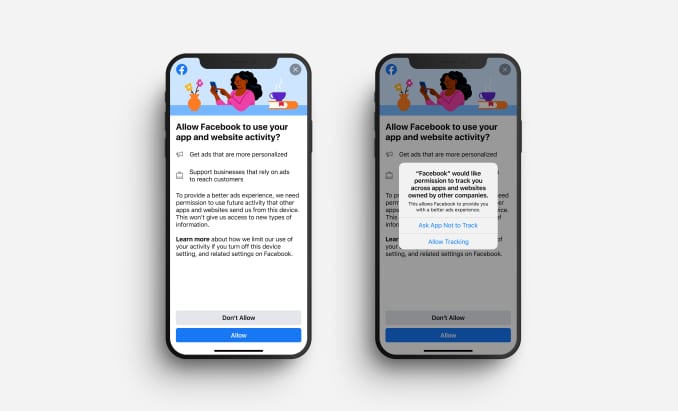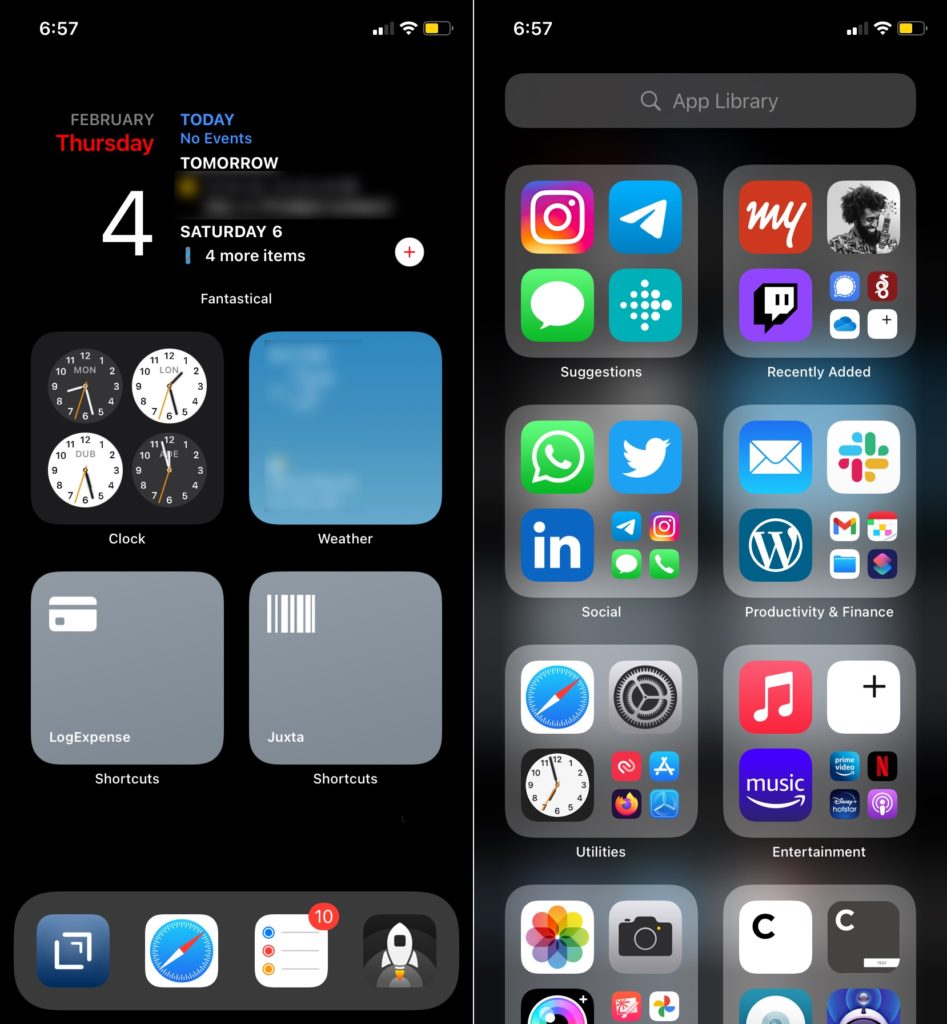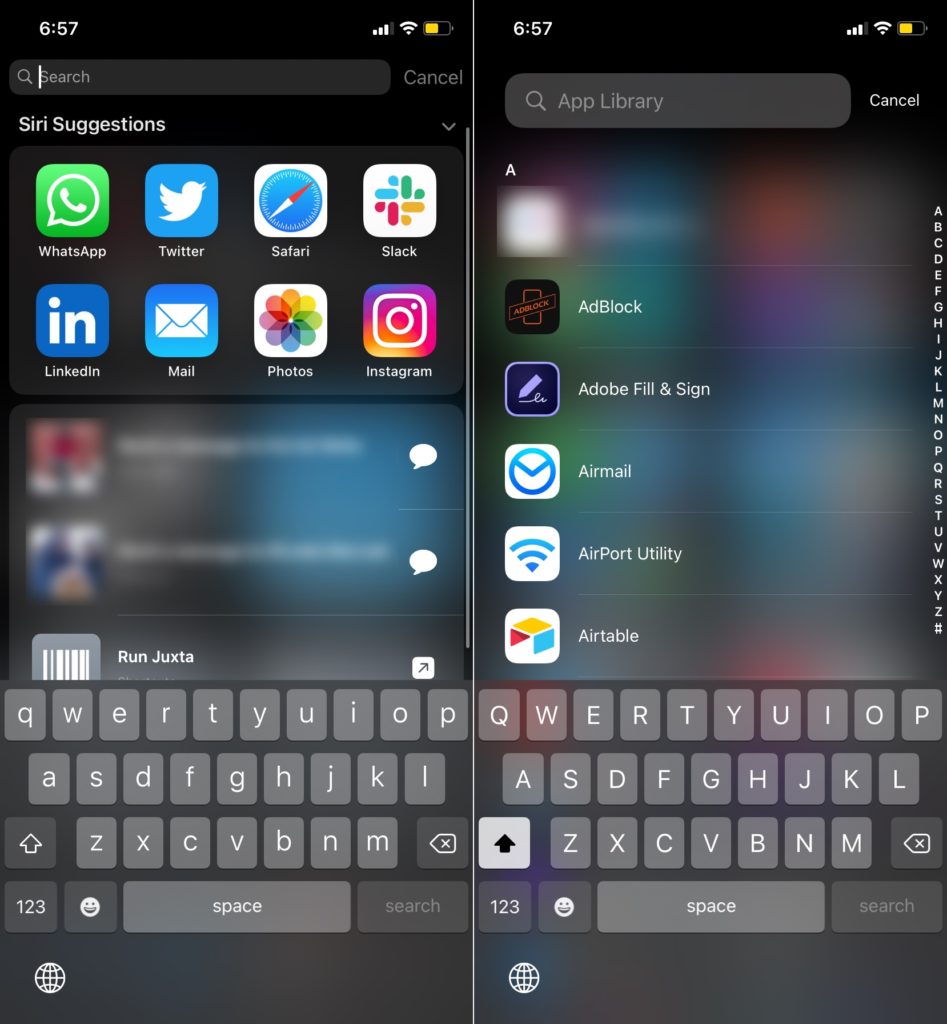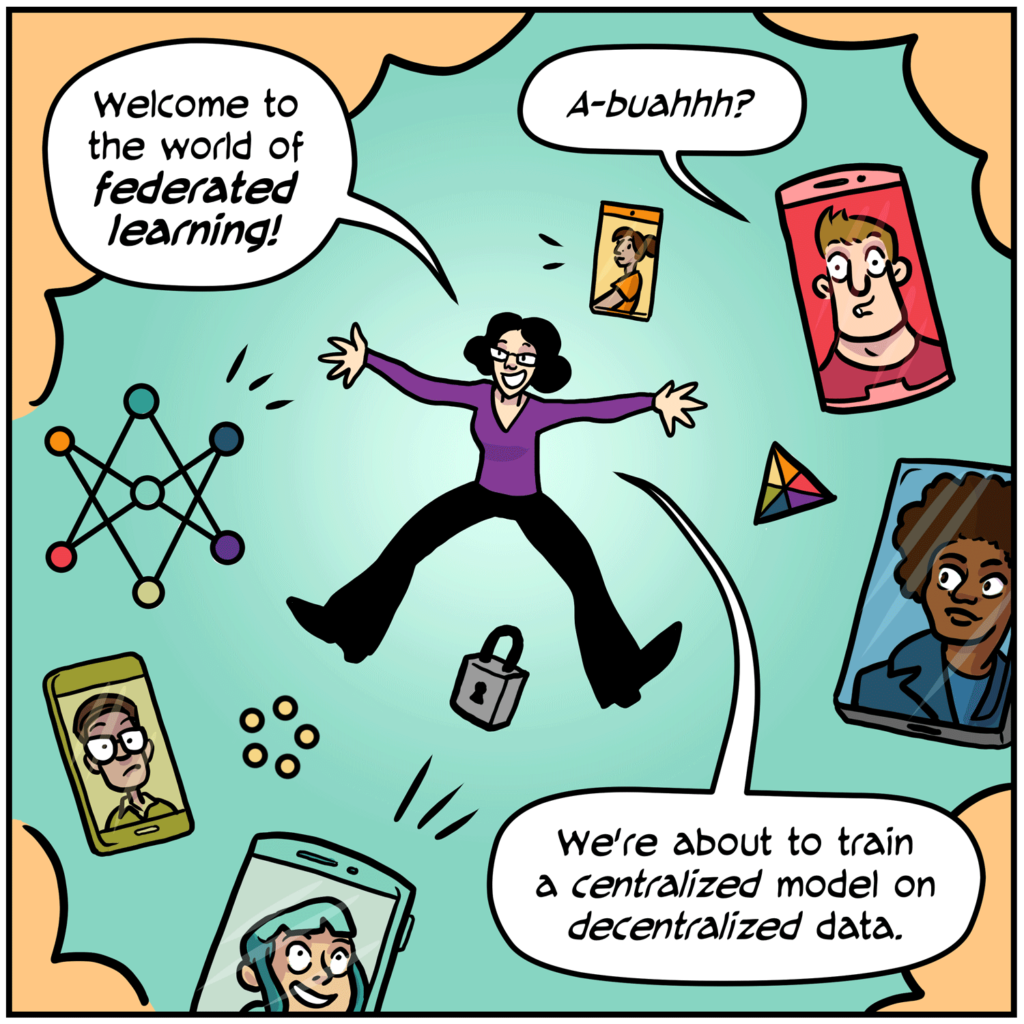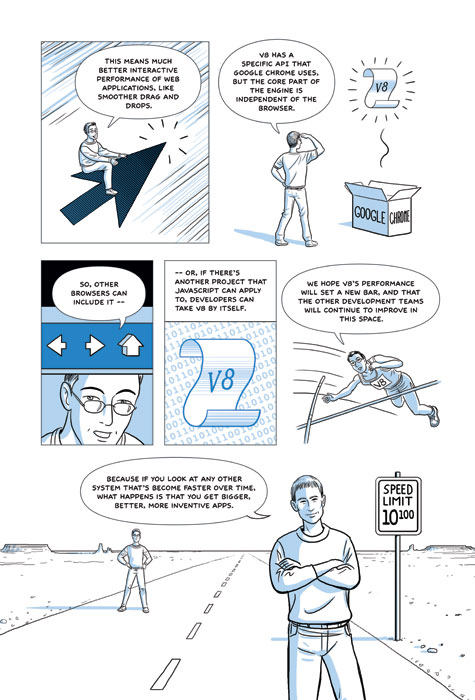Facebook is guilting people who use their iPhone app. iOS 14’s App Tracking Transparency now requires app makers to explicitly get people’s assent to be tracked. If the phone user declines, iOS only sends generic information that’s really hard to trace back to any identifiable person.
Obviously, this works against Facebook’s interests. It’s built a seven-hundred-billion-dollar company over fifteen years on the back of a sophisticated, extremely aggressive data collection and ad display business.
Facebook’s tried public pressure and PR to lobby against this intervention, arguing that this opt-in hurts not it, but small businesses, who rely on Facebook ads to target would-be customers.
Now Facebook’s building that argument right into its app, with a full-screen appeal to its users to allow themselves to be tracked in detail, so that small businesses may thrive. First reported by CNBC, here is what the screen supposedly looks like (left, before Apple’s prompt to the right):
Facebook’s CEO has said publicly that the company sees Apple as a competitor because “has every incentive to use their dominant platform position to interfere with how our apps and other apps work, which they regularly do to preference their own… Now Apple may say that they’re doing this to help people, but the moves clearly track their competitive interests.”
Now, Facebook’s straight-up ‘gaslighting’ people into voluntarily overriding Apple’s protections.
(Part 2 – comparing how Facebook and Apple talk about people’s data)

